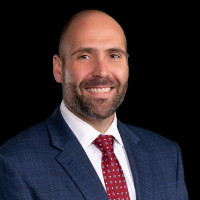Williams Felony Lawyer, South Carolina
Sponsored Law Firm
-
 x
x

Click For More Info:
-
Clekis Law Firm P.A.
171 Church St, Charleston, SC 29401» view mapCriminal Defense Law Clekis Cares. We Listen to You.
Clekis Law Firm has been representing clients for over three decades.
800-725-6591
Not enough matches for Williams Felony lawyer.
Below are all Williams Criminal lawyers.
Chad D. Shelton
Criminal, DUI-DWI, Felony
Chad was born and raised in St. Charles, Missouri just outside of St. Louis. He attended undergrad at Valparaiso University in Northwest Indiana and ... (more)
R. Thayer Rivers
Real Estate, Workers' Compensation, Criminal, Personal Injury
Status: In Good Standing
Angela W. Abstance
Power of Attorney, Employment, Divorce & Family Law, Criminal
Status: In Good Standing
Belinda Montio Davis-Branch
Divorce & Family Law, Criminal, Accident & Injury
Status: In Good Standing
Benjamin Andre Lafond
Criminal, Divorce, Child Custody, Residential Real Estate
Status: In Good Standing
 Nicholas Clekis Charleston, SC
Nicholas Clekis Charleston, SC

